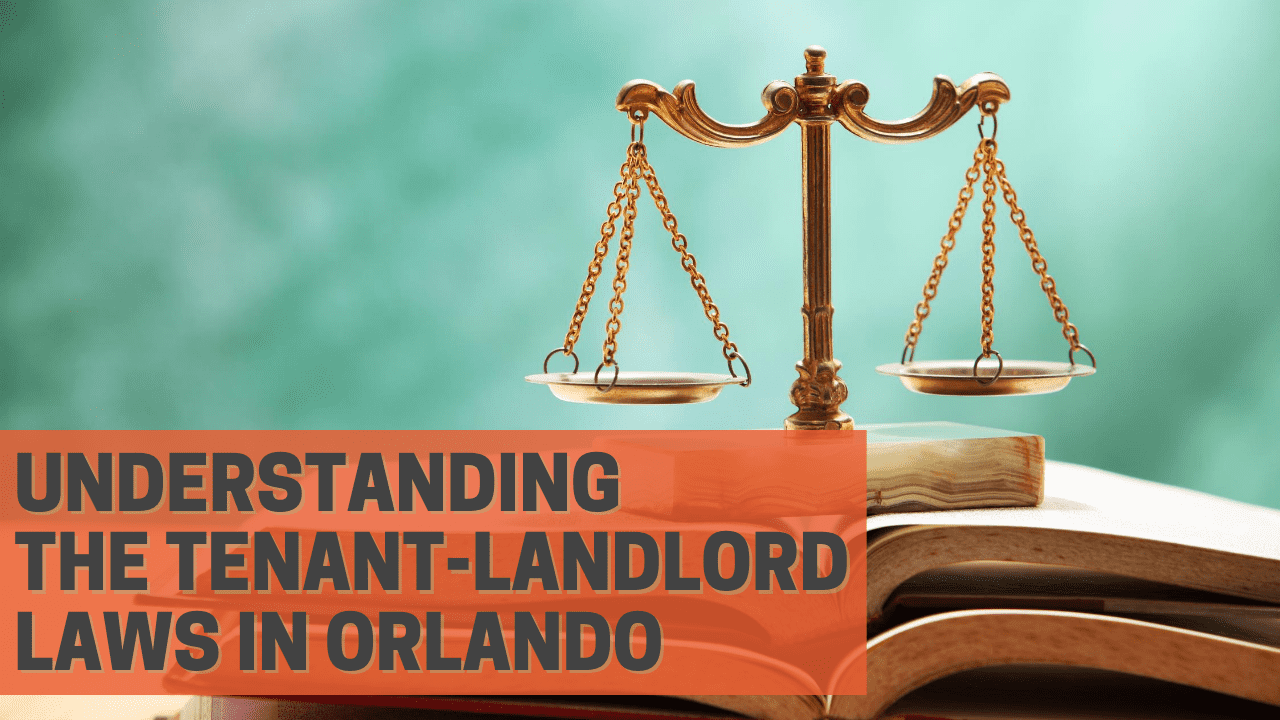
Owning rental property in Orlando requires you to understand the state, local, and federal laws that apply to landlords and tenants. Your most basic legal responsibility is to provide a safe and habitable home for your tenants. The residents living in your home are required to pay rent and follow the terms of your lease agreement.
To protect yourself against expensive legal mistakes, we recommend working with a professional Orlando property management company. Local property managers stay up to date on all the laws and legal requirements.
The laws we’re discussing today are not a comprehensive or exhaustive list of the things you need to know. They’re meant to be an introduction to the things you need to pay attention to as a rental property owner.
Write a Florida-Specific Lease
The lease agreement you use must reflect all the requirements and responsibilities that are mandated by Florida law. The lease is intended to protect the rights and responsibilities of both landlords and tenants.
Don’t download any lease template you find online. It won’t necessarily cover all the laws and requirements in Florida. Talk to an Orlando property manager if you need a lease template so you can be sure it’s legally enforceable and compliant.
Federal Housing Laws – Fair Housing Act and ADA
Federal laws are just as important as Florida state laws.
Fair housing laws, for example, make it illegal to discriminate when you’re marketing your property, screening applications, or enforcing your lease with tenants. It’s critical that you’re consistent, and you need documented processes that prove you are treating everyone fairly and equally. You are not legally allowed to make leasing decisions based on:
- Race
- Color
- Religion
- National origin
- Sex
- Familial Status
- Disability
The Americans with Disabilities Act is also important for Orlando landlords to know. You’re legally required to make reasonable accommodations for people with disabilities. Service and support animals are a big part of this, and it’s an area of the law that’s always changing and updating.
Orlando Security Deposit Laws
Florida law does not limit the amount of money you can collect in a security deposit. However, there are a lot of details involved in the collection and return of a resident’s security deposit. The most important thing to remember is that the security deposit is actually your tenant’s money – you cannot use it during the tenancy and you cannot combine it with your own funds.
You’re required to disclose in writing whether a security deposit will be held in an interest or non-interest bearing account. Other information you have to provide includes the rate and time of interest payments, and the address of the bank where the security deposit is held. The law requires you to provide this information within 30 days of receiving a security deposit. Put this information in your lease agreement.
You also need to hold the security deposit in a Florida bank with a local branch office, even if you live elsewhere. Security deposits do not need to be held in an interest-bearing account, but if they are, interest payments must be made both annually and at the termination of the tenancy. If you offer your tenants a renewal, you should pay interest on or before the one-year anniversary of the lease being executed.
Florida law requires landlords to return a tenant’s security deposit within 15 days of move-out if there are no reasons to deduct money from that deposit. If you do plan to make deductions based on damage, cleaning costs, or past due accounts, you’ll have to return the remaining deposit and a detailed accounting within 30 days.
Understanding the Florida Eviction Process
 An eviction moratorium is still in place through the end of August in Florida. If you want to terminate a tenancy in Orlando for failure to pay rent, lease violations, or illegal activities, you’ll have to wait until the courts are hearing them again.
An eviction moratorium is still in place through the end of August in Florida. If you want to terminate a tenancy in Orlando for failure to pay rent, lease violations, or illegal activities, you’ll have to wait until the courts are hearing them again.
Once you’re able to file for eviction, the first step is serving a Three Day Notice to Pay or Quit. That essentially gives the tenants three days to catch up with the overdue rent or move out. If those three business days come and go without a rental payment or a vacancy, then you can pursue a legal eviction through the courts.
These are just a few of the legal requirements every rental property owner in Florida needs to know. We can help you avoid expensive legal mistakes and assist you in the better management of your rental property. Please contact us at Park Avenue Property Management for any help with your Orlando investment.